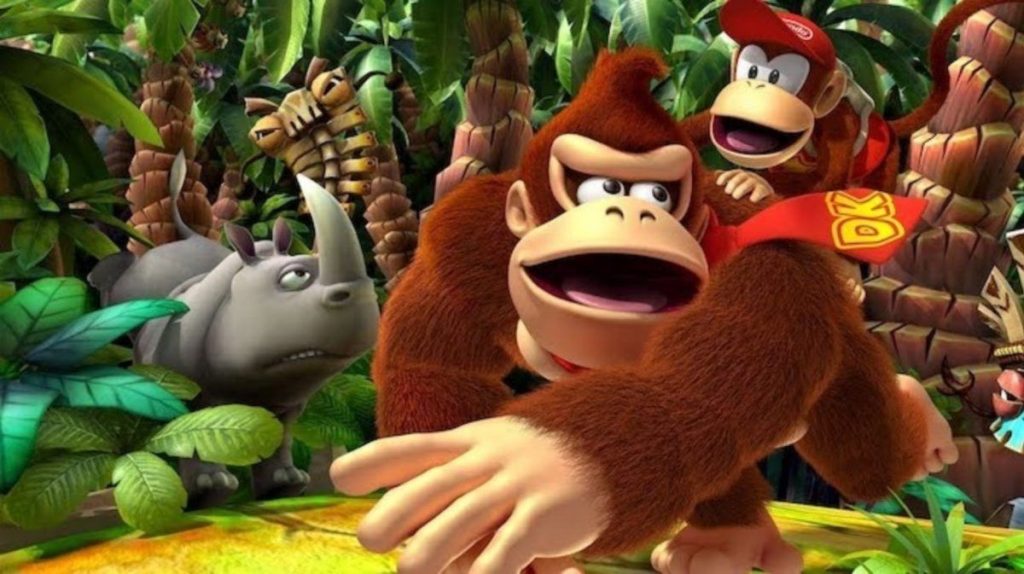Since Mario’s 35th birthday celebrations last year, Nintendo anniversaries feel loaded with expectation. Mario is Nintendo’s golden boy, so of course he’ll have celebratory game collections, pin badges, Lego sets, and a glowing performance review despite playing golf during the 9 to 5. Nintendo’s other mascots, meanwhile, merely hope for shout-outs in the morning meeting, £20 Next vouchers, or confetti in a half-assed company email.
Alright, sometimes they get lucky. The Legend of Zelda’s 35th anniversary includes Skyward Sword HD and a special Game & Watch, while Metroid (after years of neglect) has a new 2D adventure in Metroid Dread out in October. Pokemon received bizarre Post Malone concerts and a track from Katy Perry, for some reason. They’re not quite Mario-tier celebration, but it’s perhaps silly to expect fanfare comparable to Nintendo’s most iconic character.
Related:Nintendo seems silent on Donkey Kong's 40th anniversary
In Donkey Kong’s case though, there’s grounds for a HR complaint. The day of his 40th anniversary on 9 July was met with silence from Nintendo, while Donkey Kong Country artist Steve Mayles and composer David Wise posted tributes. The silence might indicate some project is underway, as rumours suggest, but it’s odd Nintendo didn’t cobble together a GIF to ride the #DonkeyKong40 engagement — especially as 1981’s Donkey Kong is a classic which marks Mario’s (or Jumpman, as he was known) historic debut too.
Mario and Donkey Kong share their history, it’s impossible to celebrate the former without the latter. The original Donkey Kong Country trilogy on the SNES in the 1990s were inspired by the Super Mario Bros. series, boosted with pre-rendered graphics. Diddy Kong Racing followed Mario Kart 64 with unique innovations like more vehicles and a single-player story mode. The same trailing pattern happened with Donkey Kong 64 in 1999, a 3D platformer collect-a-thon which emerged from Super Mario 64 and Banjo Kazooie’s shadow with better visuals, albeit worse design. It’s greatest legacy might be the DK Rap, a bop ridiculed at the time that’s since earned appreciation in the modern meme era.
In recent decades, Donkey Kong has unfairly remained in Mario’s shadow. The revival of Donkey Kong Country by Retro Studios, and its sequel Tropical Freeze, are better than any 2D Mario side-scrolling platformer in recent memory — yet were dwarfed in terms of sales. Donkey Kong Jungle Beat, which used the bongo controllers from Donkey Konga, was also a pre-cursor to Nintendo EAD’s Super Mario Galaxy — with mechanics like floating in bubbles and spinning around vines taken and adapted for Mario’s cosmos adventure.
There’s been interesting diversions in Donkey Kong’s lineage too. The Mario vs Donkey Kong series positioned the ape as Mario’s nemesis again over six games, a puzzle-orientated spiritual successor to the arcade classic. DK King of Swing and its improved sequel, DK: Jungle Climber, are also far better than anyone remembers, switching the traditional side-scrolling plain for vertical platforming using the shoulder buttons across the Nintendo DS’s dual screens.
In fact, DK’s history with Mario makes Bowser’s position as the arch nemesis slightly befuddling. Maybe DK’s brash red tie is too friendly, or the presence of his cute extended family too sweet, for constant dunks into a lava pit. Maybe it’s King K. Rool’s fault, who nudged Donkey Kong’s villain credentials down a peg to have their own baddie to rally against.
Whatever the excuse, Donkey Kong erasure has become an ever-present danger. His role in Nintendo history should be celebrated just as widely as Mario or Zelda’s, yet on an anniversary when he deserves respect and reevaluation, he feels undervalued like a haggard employee who has consistently laid the groundwork. If Nintendo doesn’t do it, it’s time we propose a toast ourselves, to the first member of the DK crew.
Now:After The Beta, I'll Return To Nier Reincarnation Just For Mama
